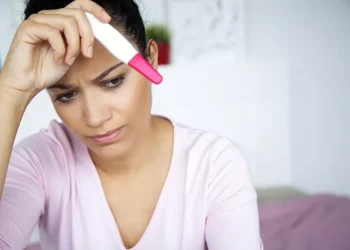Orchitis, characterized by inflammation of one or both testicles, is a condition that can significantly impact male fertility. Understanding the causes, symptoms, and treatment options for orchitis is crucial for men who are concerned about their reproductive health. In this comprehensive guide, we delve into the connection between orchitis and infertility, exploring its implications, preventive measures, and the importance of seeking medical advice.
Definition and Overview
Orchitis, derived from the Greek words “orchis” meaning testicle and “-itis” meaning inflammation, refers to the swelling and inflammation of one or both testicles. While orchitis can occur at any age, it is most common in adolescents and young adults. The inflammation may be acute, developing rapidly and causing severe symptoms, or chronic, persisting over a longer period.
Causes, Symptoms, and Risk Factors
Orchitis can be caused by various factors, including viral or bacterial infections, injury to the testicles, or underlying medical conditions. The most common cause of orchitis is infection, with viruses such as mumps and bacteria such as Escherichia coli (E. coli) being primary culprits. Sexually transmitted infections (STIs) such as gonorrhea and chlamydia can also lead to orchitis, particularly in sexually active individuals.
Symptoms of orchitis may include:
1. Swelling and tenderness of one or both testicles
2. Pain in the affected testicle, which may radiate to the groin or lower abdomen
3. Fever and chills
4. Nausea and vomiting
5. Discharge from the penis (in cases of bacterial orchitis)
Risk factors for orchitis include poor hygiene practices, unprotected sexual activity with multiple partners, and a history of urinary tract infections or STIs.
Impact on Fertility
Orchitis can have significant implications for male fertility. Inflammation of the testicles can disrupt the production and quality of sperm, leading to infertility or subfertility. The severity of infertility depends on various factors, including the extent of testicular damage and the underlying cause of orchitis.
Complications associated with orchitis that may affect fertility include:
1. Testicular atrophy (shrinkage) due to prolonged inflammation
2. Epididymitis, inflammation of the epididymis (the tube that stores and carries sperm), which can impair sperm transport
3. Reduced sperm production (oligospermia) or complete absence of sperm (azoospermia)
4. Impaired sperm motility or morphology (shape), affecting the sperm‘s ability to fertilize an egg
Medical Treatment
Treatment for orchitis typically involves addressing the underlying cause of inflammation. If orchitis is caused by a bacterial infection, antibiotics are prescribed to eradicate the bacteria and reduce inflammation. Pain relievers and anti-inflammatory medications may also be recommended to alleviate discomfort and swelling.
It is crucial for individuals experiencing symptoms of orchitis to seek prompt medical attention to prevent complications that could impact fertility. Delayed treatment may lead to chronic inflammation and irreversible damage to the testicles, exacerbating fertility issues.
Prevention Strategies
Preventing orchitis involves adopting measures to reduce the risk of infection and inflammation. Practical strategies for preventing orchitis include:
1. Practicing good hygiene: Maintain proper genital hygiene, including regular washing with mild soap and water. Avoid sharing personal items such as towels or underwear.
2. Safe sexual practices: Use condoms consistently and correctly to reduce the risk of STIs. Limit sexual partners and undergo regular STI testing if sexually active.
3. Vaccination: Ensure up-to-date vaccination against mumps, a common viral cause of orchitis. The MMR (measles, mumps, and rubella) vaccine provides immunity against mumps and reduces the risk of orchitis in vaccinated individuals.
Fertility Evaluation
Men who have experienced orchitis, especially those planning to conceive, should undergo a thorough fertility evaluation. Fertility testing may include semen analysis to assess sperm count, motility, and morphology. Additional tests, such as hormonal evaluations and imaging studies, may be recommended to evaluate reproductive function and identify any underlying conditions contributing to infertility.
Consulting with a healthcare provider specializing in reproductive medicine or urology can provide valuable insights into fertility status and treatment options. Early intervention and appropriate management can optimize fertility outcomes for men affected by orchitis.
Lifestyle Factors
In addition to medical interventions, lifestyle factors play a crucial role in optimizing male fertility. Addressing modifiable risk factors can improve sperm quality and reproductive health. Key lifestyle recommendations for promoting fertility include:
1. Avoiding tobacco and recreational drugs: Smoking and substance abuse have been linked to decreased sperm quality and fertility. Quitting smoking and avoiding illicit drugs can enhance fertility potential.
2. Moderate alcohol consumption: Excessive alcohol intake can impair sperm production and hormone levels. Limit alcohol consumption to moderate levels or abstain altogether to support reproductive health.
3. Balanced diet and exercise: Maintain a healthy weight through regular physical activity and a balanced diet rich in fruits, vegetables, lean proteins, and whole grains. Nutrient deficiencies or excesses can impact fertility, so aim for a varied and nutritious diet.
Supportive Resources
For individuals seeking additional information and support regarding orchitis, infertility, and related topics, several reputable resources are available:
1. American Society for Reproductive Medicine (ASRM): Visit the ASRM website for educational materials, patient resources, and information on fertility evaluation and treatment options.
2. Centers for Disease Control and Prevention (CDC): Explore the CDC’s website for comprehensive information on STI prevention, vaccination recommendations, and reproductive health guidelines.
3. Fertility support groups: Join online forums or support groups dedicated to infertility and reproductive health. Connecting with others who have shared experiences can provide valuable emotional support and practical advice.
Conclusion
Orchitis, characterized by inflammation of the testicles, can have significant implications for male fertility. Understanding the causes, symptoms, and treatment options for orchitis is essential for men concerned about their reproductive health. By adopting preventive strategies, seeking prompt medical care, and addressing lifestyle factors, individuals can optimize their fertility potential and improve their chances of conception. Remember, prioritizing reproductive health and seeking professional guidance when needed are critical steps in the journey toward parenthood.
Related Topics:
Emergency Guide: Reasons of Infertility After Miscarriage
A Complete Overview of Necrozoospermia: Causes and Treatment
The Definition of Oligoasthenozoospermia: A Comprehensive Guide



























